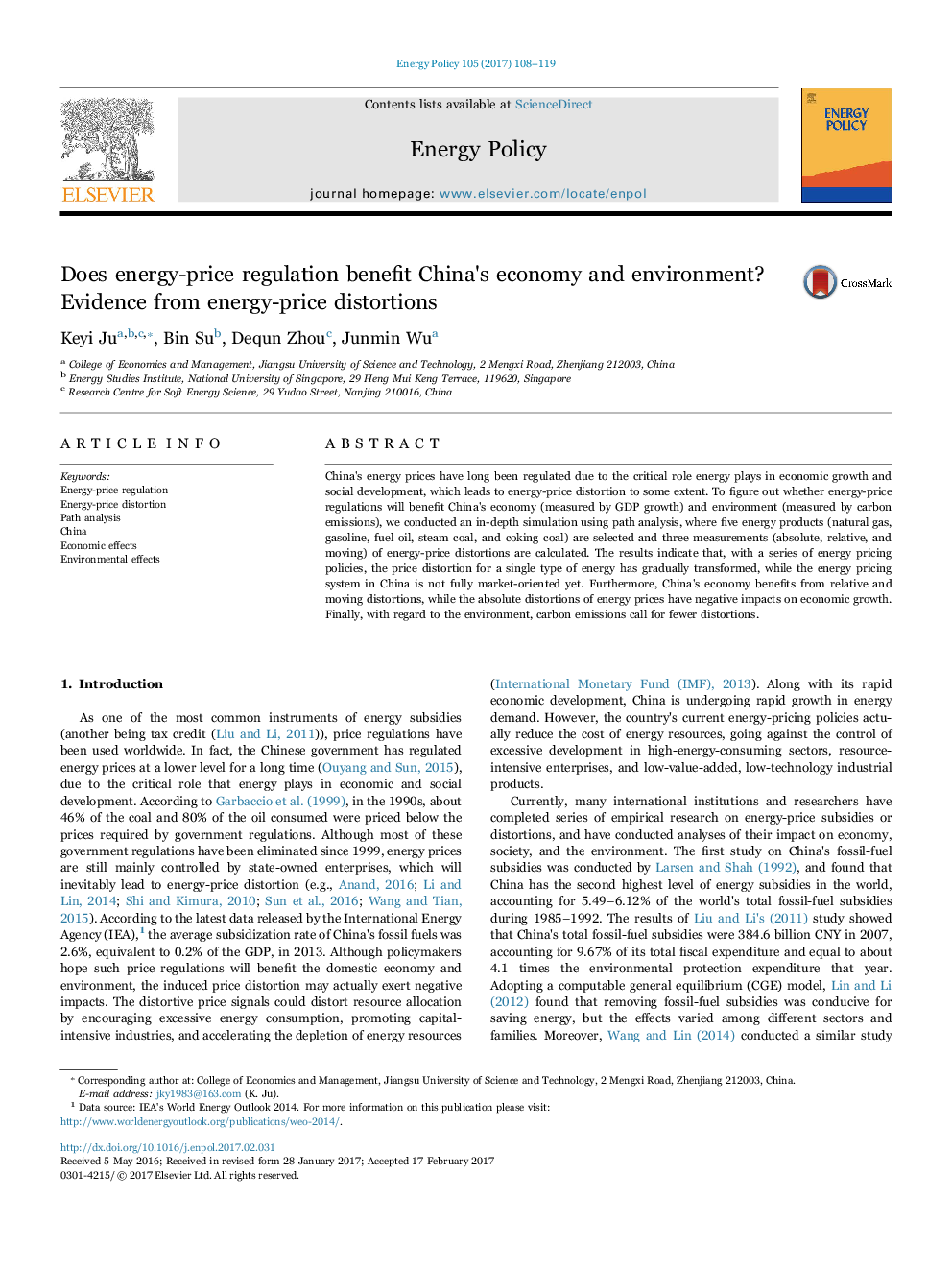ترجمه فارسی عنوان مقاله
آیا تنظیم قیمت انرژی به اقتصاد و محیط زیست چین کمک می کند؟ شواهد ناشی از تحریف قیمت انرژی
عنوان انگلیسی
Does energy-price regulation benefit China's economy and environment? Evidence from energy-price distortions
| کد مقاله | سال انتشار | تعداد صفحات مقاله انگلیسی |
|---|---|---|
| 102846 | 2017 | 12 صفحه PDF |
منبع

Publisher : Elsevier - Science Direct (الزویر - ساینس دایرکت)
Journal : Energy Policy, Volume 105, June 2017, Pages 108-119
ترجمه کلمات کلیدی
تنظیم قیمت انرژی، تحریم قیمت انرژی، تحلیل مسیر، چین، اثرات اقتصادی، تاثیرات محیطی،
کلمات کلیدی انگلیسی
Energy-price regulation; Energy-price distortion; Path analysis; China; Economic effects; Environmental effects;
ترجمه چکیده
قیمت انرژی چین به دلیل نقش حیاتی انرژی در رشد اقتصادی و توسعه اجتماعی تنظیم شده است، که تا حدودی منجر به تحریف قیمت انرژی می شود. برای تعیین این که آیا مقررات قیمت انرژی به اقتصاد چین (با رشد تولید ناخالص داخلی) و محیط زیست (با اندازه گیری انتشار گازهای کربن) سود خواهد برد، ما یک شبیه سازی عمیق با استفاده از تجزیه و تحلیل مسیر انجام دادیم، که در آن پنج محصول انرژی (گاز طبیعی، بنزین، ، زغال سنگ بخار و زغال سنگ کک) انتخاب و سه اندازه گیری (مطلق، نسبی و حرکتی) اعوجاج قیمت انرژی محاسبه می شود. نتایج نشان می دهد که با تعدادی از سیاست های قیمت گذاری انرژی، اعوجاج قیمت برای یک نوع انرژی به تدریج تغییر می کند، در حالی که سیستم قیمت گذاری انرژی در چین تاکنون به طور کامل به بازار نرسیده است. علاوه بر این، اقتصاد چین از اعوجاج نسبی و حرکتی سود می برد، در حالی که تحرکات مطلق قیمت های انرژی تاثیر منفی بر رشد اقتصادی دارد. در نهایت، با توجه به محیط زیست، انتشار کربن باعث کاهش تحریف می شود.

